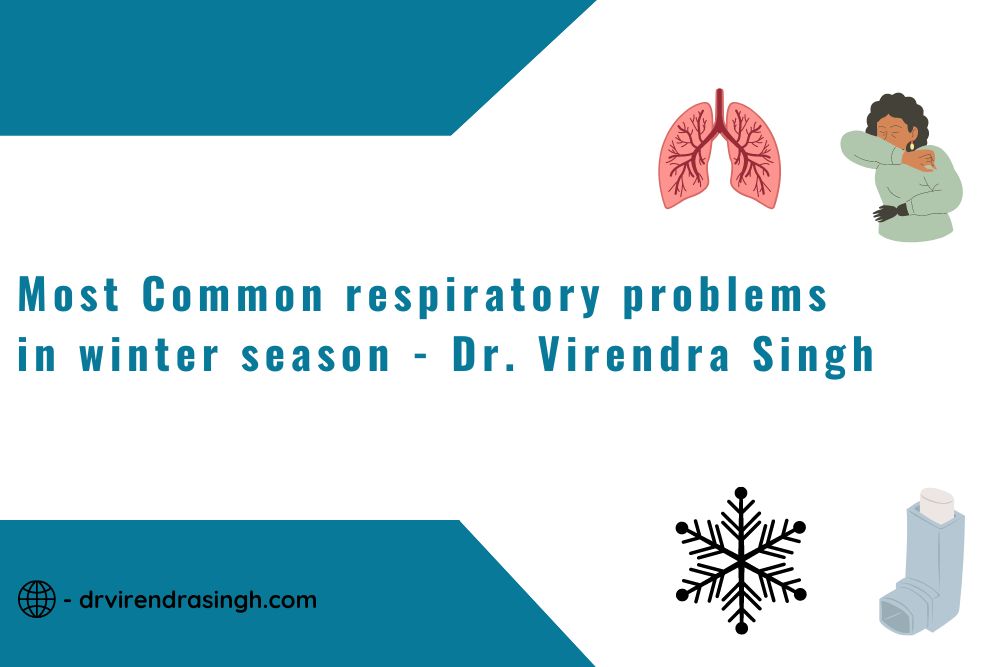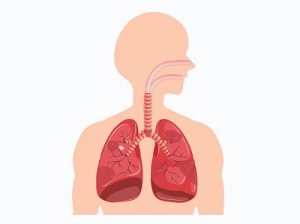
Dr. Virendra Singh says that people with respiratory illnesses can make their symptoms less harmful by watching the weather forecast and taking the proper steps. When the temperature drops in winter, the air tends to get drier. Most common respiratory problems in winter season people with asthma, COPD, or bronchitis may feel even worse because the air is dry. There are many ways that cold weather can make breathing problems worse.
Most Common respiratory problems in winter season
Respiratory illnesses are infections or other conditions that make it hard to breathe. Also, by the time most people reach their second birthday, they have had what is usually called a respiratory disease. Since the chest cavity is completely open when you breathe in and out, it is the main target of many diseases. During the winter, people spend more time inside and are closer to each other. Winter’s dry, cold air also makes it harder for the body to heal quickly after getting sick.
We need to understand why exposure to cold air exacerbates respiratory conditions.

This can all be summed up in one word: dry air. When we breathe in dry air, the thin layer of fluid that usually lines our airways dries out faster. Dr. Virendra Singh says that most common respiratory problems are when fluid is lost through evaporation more quickly than it can be replaced. This makes the throat dry, making the irritation and swelling common with COPD and asthma worse. The cold also makes people make more mucus. When it’s cold outside, your body produces more mucus to protect your throat. This mucus is thicker and stickier than usual. It can make it hard for you to breathe and make you more likely to get sick in general.
What are some typical cold-related respiratory issues?
- Asthma
Attacks of asthma are often brought on by breathing in cold air. Also, the flu, colds, and other contagious diseases are more likely to spread in the winter. Some people’s asthma symptoms get worse when these things happen.
- Bronchitis
Bronchitis is an inflammation of the bronchi, the airways that bring air into the lungs. Acute and long-term bronchitis can cause symptoms that are similar to those of the common cold, but they are much worse. Typical symptoms include a stuffy chest, coughing mucus, trouble breathing, and wheezing.
- Pneumonia
Even though a bacterial or viral infection causes pneumonia, the cold may make it easier for it to spread. Suppose someone already has a cough or a respiratory infection like pneumonia. In that case, the cold air could worsen their symptoms, like breathing shallowly and quickly, feeling short of breath, and getting a fever.
- COPD
Chronic obstructive pulmonary disease (COPD) patients are more likely to get sick in the winter. Cold air causes significant changes in the respiratory system, like narrowing the airways and flare-ups that can make more mucus, make it hard to breathe, and make you cough.
Please feel free to contact Dr. Virendra Singh if you need assistance.
If you have severe symptoms of a respiratory illness, you should see a doctor immediately.
We know it can be hard to see your doctor right away, and when the common cold is going around, no one wants to wait around. In that case, Dr. Virendra Singh is available 24 hours a day, 365 days a year, to help with any urgent medical needs. If you have trouble breathing, you should see a specialist like Dr. Virendra Singh to find out why and get the care you need.


